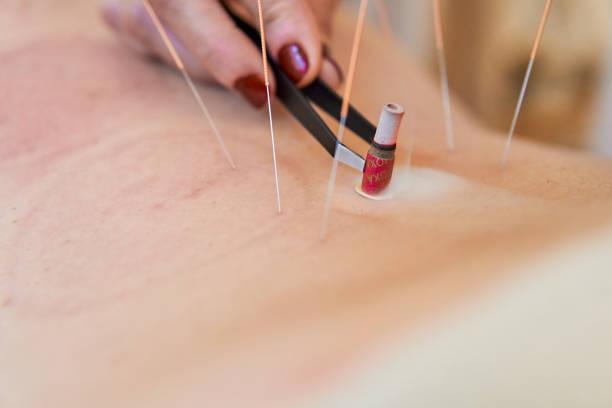
Introduction
For many couples, the journey to parenthood is not always straightforward. Infertility affects millions of people worldwide, leading to stress, frustration, and emotional strain. While modern medicine offers various treatments such as IVF and hormone therapy, an increasing number of individuals are turning to complementary therapies like acupuncture for fertility to improve their chances of conception. But how exactly does acupuncture support fertility, and what does the science say? This article explores the role of acupuncture in enhancing reproductive health and helping couples conceive naturally or through assisted fertility treatments.
Understanding Infertility and Its Causes
Infertility is defined as the inability to conceive after 12 months of regular unprotected intercourse. It can affect both men and women, and common causes include:
- Hormonal imbalances – Irregular menstrual cycles, polycystic ovary syndrome (PCOS), and thyroid dysfunction can disrupt ovulation.
- Poor egg or sperm quality – Age, lifestyle factors, and medical conditions can impact reproductive cell health.
- Blocked fallopian tubes – Scarring from infections, surgery, or endometriosis can prevent fertilisation.
- Uterine conditions – Fibroids, polyps, or an inhospitable uterine lining can hinder implantation.
- Male factor infertility – Low sperm count, poor motility, or abnormal morphology contribute to conception challenges.
- Stress and lifestyle factors – High levels of stress, poor diet, and exposure to toxins can negatively impact fertility.
While conventional treatments address these issues, acupuncture offers a natural, non-invasive way to support reproductive health and improve conception rates.
How Acupuncture Supports Fertility
Acupuncture is a traditional Chinese medicine (TCM) practice that involves inserting fine needles into specific points on the body to regulate energy flow (Qi) and restore balance. When applied to fertility, acupuncture works in several ways:
1. Regulating Hormonal Balance
Hormones play a crucial role in ovulation, implantation, and overall reproductive function. Acupuncture stimulates the hypothalamus-pituitary-ovarian (HPO) axis, which helps regulate reproductive hormones such as:
- Oestrogen and progesterone – Essential for a healthy menstrual cycle and pregnancy.
- Luteinising hormone (LH) and follicle-stimulating hormone (FSH) – Key for ovulation and egg maturation.
- Prolactin – High levels can interfere with ovulation, and acupuncture helps regulate it.
- Cortisol – High stress levels can disrupt hormonal balance; acupuncture reduces cortisol and promotes relaxation.
2. Improving Blood Flow to the Reproductive Organs
Good circulation to the uterus and ovaries is essential for optimal fertility. Acupuncture enhances blood flow, which:
- Thickens the uterine lining, improving implantation chances.
- Increases ovarian response, leading to better egg quality.
- Supports testicular function in men, improving sperm production.
3. Reducing Stress and Anxiety
Trying to conceive can be stressful, and high stress levels can negatively impact fertility. Acupuncture triggers the body's relaxation response by stimulating the parasympathetic nervous system. This helps:
- Reduce anxiety and depression.
- Lower cortisol levels, which interfere with reproductive hormones.
- Improve sleep quality, further supporting hormonal balance.
4. Enhancing Egg and Sperm Quality
Egg and sperm quality decline with age and environmental factors. Acupuncture supports cellular health by:
- Increasing antioxidant activity, which protects reproductive cells.
- Reducing oxidative stress that can damage eggs and sperm.
- Supporting mitochondrial function, crucial for embryo development.
5. Supporting IVF and Assisted Reproductive Treatments
Many couples undergoing IVF (in vitro fertilisation) incorporate acupuncture into their treatment plans. Research suggests that acupuncture:
- Increases implantation success rates.
- Improves response to ovarian stimulation.
- Reduces side effects of fertility drugs.
- Lowers miscarriage risk by supporting early pregnancy.
A study published in the British Medical Journal found that women who had acupuncture alongside IVF had significantly higher success rates than those who did not.
Acupuncture Treatment for Fertility: What to Expect
If you are considering acupuncture for fertility, here is what you can expect from treatment:
Initial Consultation
Your acupuncturist will take a detailed medical history, discuss your menstrual cycle, lifestyle, and any existing fertility treatments. Based on this information, a personalised treatment plan will be created.
Treatment Sessions
- Sessions typically last 30 to 60 minutes.
- Fine needles are inserted into specific acupuncture points linked to reproductive health.
- Common points include SP6 (Sanyinjiao), CV4 (Guanyuan), ST36 (Zusanli), and LI4 (Hegu).
- Most patients find acupuncture relaxing and experience minimal discomfort.
Recommended Frequency
- For natural conception, weekly sessions for 3-6 months are recommended.
- For IVF support, sessions are often tailored around the treatment cycle, with acupuncture before and after embryo transfer.
- Consistency is key, as acupuncture supports long-term reproductive health.
Additional Lifestyle Tips to Enhance Fertility
Alongside acupuncture, incorporating healthy lifestyle habits can further improve fertility:
1. Maintain a Balanced Diet
- Eat fertility-boosting foods rich in antioxidants, healthy fats, and lean proteins.
- Include leafy greens, nuts, seeds, and omega-3 sources like salmon.
- Reduce processed foods, sugar, and caffeine.
2. Exercise Regularly but Moderately
- Engage in low-impact exercises like yoga, walking, or swimming.
- Avoid excessive high-intensity workouts that can disrupt ovulation.
3. Reduce Toxins and Endocrine Disruptors
- Use chemical-free skincare and household products.
- Avoid plastics containing BPA, which can interfere with hormones.
4. Manage Stress Levels
- Practice meditation, deep breathing, or mindfulness.
- Prioritise sleep, aiming for 7-9 hours per night.
5. Consider Herbal Medicine
- Some TCM practitioners recommend herbal formulas to support fertility, but always consult a qualified professional before use.
Conclusion
For those struggling to conceive, acupuncture for fertility offers a natural, holistic approach to improving reproductive health. By regulating hormones, enhancing circulation, reducing stress, and supporting assisted fertility treatments, acupuncture can significantly boost conception chances. If you are considering acupuncture as part of your fertility journey, consult a licensed practitioner to create a tailored treatment plan that best supports your reproductive goals.
Are you ready to explore acupuncture for fertility? Book a consultation with a qualified acupuncturist and take the next step towards parenthood.

